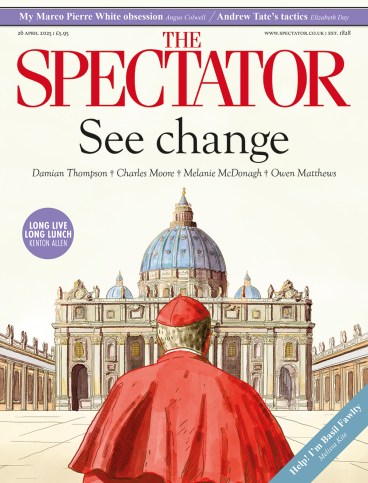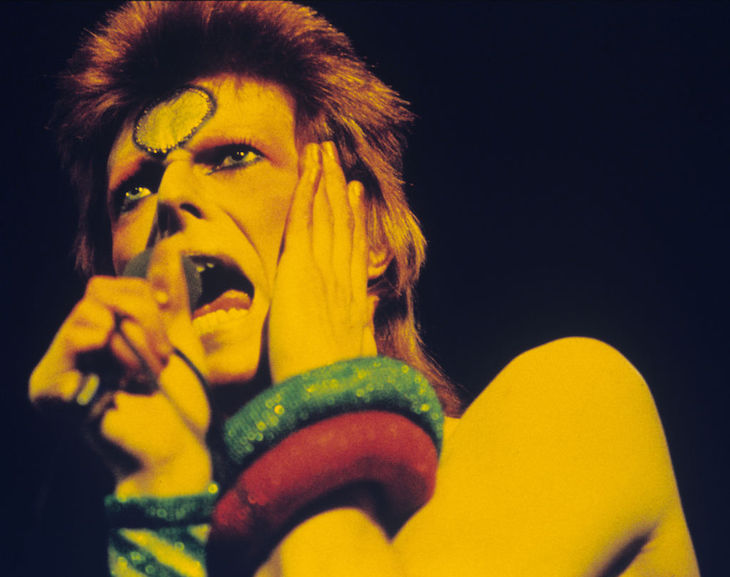
The weather in Bath has been preposterously good, with the Royal Crescent glowing in a soft, lemony light. I’m here for my How to Fail live podcast tour. I launched the podcast back in 2018, which, by podcasting standards, makes me practically geriatric. At the time, I felt like a failure (divorce, infertility, that kind of thing) and I wanted to know how others coped. So I started asking them. I could never have imagined that How to Fail would, ironically, become the most successful thing I have done. Nor could I have anticipated the growth in podcasting as an industry. An intimate audio medium has turned into a cultural behemoth, spawning books, tours and branded merchandise. Podcasters are now being encouraged to film everything. It appears we have simply reverse-engineered what used to be known as ‘television’.
The How to Fail tour has consisted of eight dates across the UK and Ireland. I interview a guest about three occasions when they have failed and what – if anything – it has taught them. In Bath, it was the turn of Charlotte Church, who was a delight. She spoke about becoming famous as a 12-year-old with the ‘Voice of an Angel’ and the trauma that came with it. At the height of her celebrity, the tabloids hacked the phone of everyone she knew, including her family priest. She was encouraged by her then management to perform for free at Rupert Murdoch’s wedding to Wendi Deng in exchange for favourable press coverage, which never materialised. She also revealed that Murdoch’s private jet has gold taps and that the kindest celebrity she ever met was Tom Cruise. She then hopped up from her chair in bare feet and led the audience in an improvised singing session. One side of the auditorium sang ‘Mother’, the other side sang ‘Nature’, and she ad-libbed over the top. It could have been unbearably cringe, but something about Charlotte’s openness won us all over. She now runs a healing centre in the Powys Valley and I’m quite tempted to go. There is a five-day retreat designed to ‘activate the witch within’ led by Charlotte and a high priestess called Tree. In the meantime, I can’t wait to see her on the BBC’s Celebrity Traitors.
One of the questions that always comes up in the audience Q&A section is whether men and women view failure differently. When I started the podcast, almost every straight man I approached to be a guest said something along the lines of: ‘Well, I don’t think I have failed, really…so I’m not sure I’m right for this.’ Almost every woman, by contrast, insisted that they had failed so many times, they couldn’t possibly whittle it down to just three. I used to think this attitude was because a certain type of man is still born into a world made in his image. For him, failure is simply an obstacle easily overcome on his path to guaranteed success. Women were more likely to internalise failure and see it as a verdict on their character. As the podcast has grown, this disparity has narrowed. I now get all sorts of guests who readily admit to having failed, no matter their gender. I have come to realise, though, that there is an additional nuance, which is that men have historically not been allowed to admit to failure in case it is seen, wrongly, as a weakness or un-masculine.
Talking of which, I’m reading a book about Andrew Tate (know your enemy and all that). Tate is a self-proclaimed misogynist and unofficial ruler of the ‘manosphere’. He is also a suspected criminal, facing charges of rape, human trafficking and tax evasion. I hadn’t known much about his background before reading Clown World: Four Years Inside Andrew Tate’s Manosphere by Jamie Tahsin and Matt Shea, but it turns out he’s both the son of an international chess master, and a former Big Brother contestant. I believe these two facts explain a lot about how Tate has managed to spread his violent ideas into the mainstream. He’s a strategist who understands popular culture. It is a powerful combination.
I’m in the final throes of edits for my new novel, One of Us, which is out in September. We’re at the stage where the copy editor is pointing out my inability to grasp anything mathematical. Are we sure this person gave birth to their youngest child at the age of 68? How can the protagonist be born in 1978 and yet have reached their 50th birthday when the plot is set in the present day? On it goes. ‘I’m a creative,’ I want to shout. ‘I can’t be expected to do the sums.’ Thank heavens for copy editors, who make sure literature actually adds up.
One of Us is set in the heart of the establishment, with characters including failed politicians, corrupt millionaires and impassioned eco-activists. There’s even a scene set at a weekly periodical’s summer party. Any resemblance to The Spectator’sannual shindig is, of course, purely coincidental.








Comments